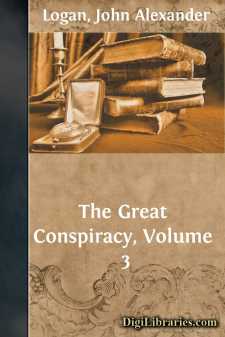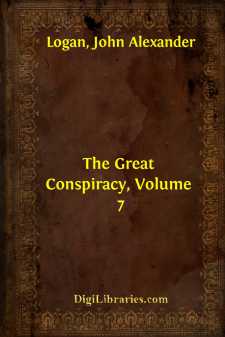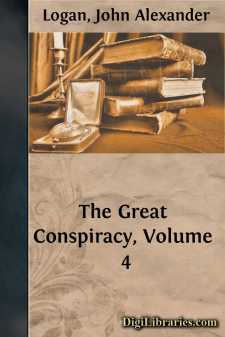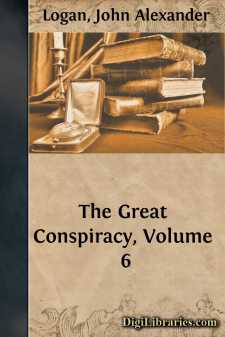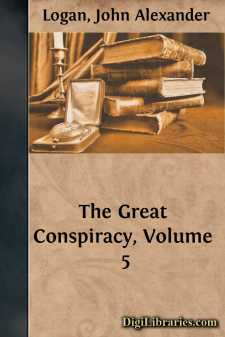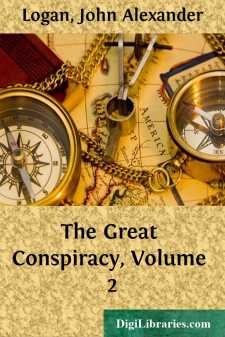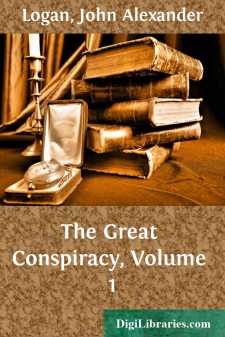Categories
- Antiques & Collectibles 13
- Architecture 36
- Art 48
- Bibles 22
- Biography & Autobiography 813
- Body, Mind & Spirit 142
- Business & Economics 28
- Children's Books 15
- Children's Fiction 12
- Computers 4
- Cooking 94
- Crafts & Hobbies 4
- Drama 346
- Education 46
- Family & Relationships 57
- Fiction 11828
- Games 19
- Gardening 17
- Health & Fitness 34
- History 1377
- House & Home 1
- Humor 147
- Juvenile Fiction 1873
- Juvenile Nonfiction 202
- Language Arts & Disciplines 88
- Law 16
- Literary Collections 686
- Literary Criticism 179
- Mathematics 13
- Medical 41
- Music 40
- Nature 179
- Non-Classifiable 1768
- Performing Arts 7
- Periodicals 1453
- Philosophy 64
- Photography 2
- Poetry 896
- Political Science 203
- Psychology 42
- Reference 154
- Religion 513
- Science 126
- Self-Help 84
- Social Science 81
- Sports & Recreation 34
- Study Aids 3
- Technology & Engineering 59
- Transportation 23
- Travel 463
- True Crime 29
The Great Conspiracy, Volume 3
Description:
Excerpt
CHAPTER XI.
THE CAUSES OF SECESSION.
In preceding Chapters of this work, it has been briefly shown, that from the very hour in which the Republic of the United States was born, there have not been wanting, among its own citizens, those who hated it, and when they could not rule, were always ready to do what they could, by Conspiracy, Sedition, Mutiny, Nullification, Secession, or otherwise, to weaken and destroy it. This fact, and the processes by which the Conspirators worked, is very well stated, in his documentary "History of the Rebellion," by Edward McPherson, when he says: "In the Slaveholding States, a considerable body of men have always been disaffected to the Union. They resisted the adoption of the National Constitution, then sought to refine away the rights and powers of the General Government, and by artful expedients, in a series of years, using the excitements growing out of passing questions, finally perverted the sentiments of large masses of men, and prepared them for Revolution."
Before giving further incontestable proofs establishing this fact, and before endeavoring to sift out the true cause or causes of Secession, let us first examine such evidences as are submitted by him in support of his proposition.
The first piece of testimony, is an extract from an unpublished journal of U. S. Senator Maclay of Pennsylvania, from March 4, 1789, to March 3, 1791—the period of the First Congress under the Federal Constitution. It runs thus:
"1789, June 9.—In relation to the Tariff Bill, the affair of confining the East India Trade to the citizens of America had been negatived, and a committee had been appointed to report on this business. The report came in with very high duties, amounting to a prohibition. But a new phenomenon had made its appearance in the House (meaning the Senate) since Friday.
"Pierce Butler, from South Carolina, had taken his seat, and flamed like a meteor. He arraigned the whole Impost law, and then charged (indirectly) the whole Congress with a design of oppressing South Carolina. He cried out for encouraging the Danes and Swedes, and foreigners of every kind, to come and take away our produce. In fact he was for a Navigation Act reversed.
"June 11.—Attended at the hall as usual.
"Mr. Ralph Izard and Mr. Butler opposed the whole of the drawbacks in every shape whatever.
"Mr. (William) Grayson, of Virginia, warm on this subject, said we were not ripe for such a thing. We were a new Nation, and had no business for any such regulations—a Nation /sui generis/.
"Mr. (Richard Henry) Lee (of Virginia) said drawbacks were right, but would be so much abused, he could not think of admitting them.
"Mr. (Oliver) Ellsworth (of Connecticut) said New England rum would be exported, instead of West India, to obtain the drawback.
"I thought it best to say a few words in reply to each. We were a new Nation, it was true, but we were not a new People. We were composed of individuals of like manners, habits, and customs with the European Nations. What, therefore, had been found useful among them, came well recommended by experience to us....


